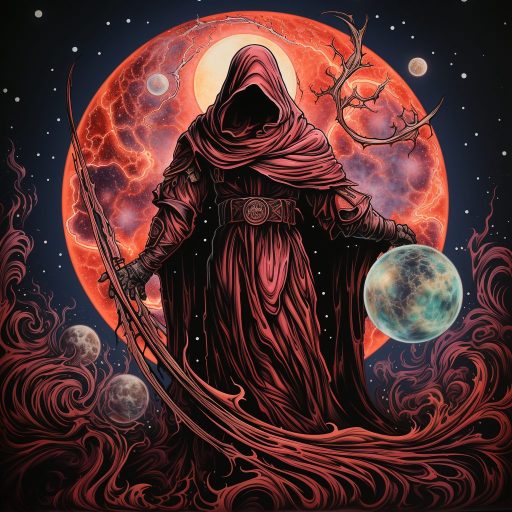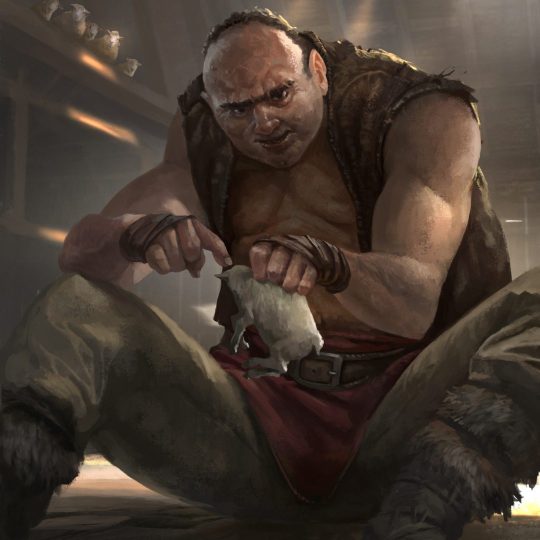
Worldbuilding Society and Class Prejudice in D&D
Firstly, I should clarify that when we discuss “class” in this post, we’re talking about the character class mechanic in fifth edition Dungeons & Dragons, not social class as it exists in our world. The character class system is an integral aspect of roleplaying games whether tabletop, video games, or whatever. That being said, have you ever stopped to think about what a class would look like in a story?

As a massive nerd involved in multiple fandoms, I have to admit I’ve been guilty of trying to codify my favorite characters into D&D mechanics, more often than not.
I don’t have a problem. You have a problem!
Okay… maybe I have a problem.
But humor me for a moment, okay? While piecing together how to codify She-Ra characters into D&D (She-Ra is a Celestial, Pact of the Blade warlock. Fight me.) I began to think, “You know, these characters are really well grounded into their world, but their mechanical classes still largely shine through.”
Then, I began to think, “Suppose we approached the class system from a worldbuilding perspective, instead of a character-focused one?”
This really got my wheels turning.
Should we hire the fighter or the paladin?
I began thinking about core flavor aspects built into each character class. Fighters are people trained with weapons — that’s their forte. Paladins are like fighters, but impassioned about a cause so strongly, they are quite literally warriors for their respective causes. That’s cool and all, but then I got to think about how society would differentiate these two individuals, and what would that look like?
Fighters are probably the people you look to for bodyguards, soldiers, and the like. Paladins, though? They’re dedicated to their cause. Their loyalty might be forever in question, and it might even be the case that a party might hesitate to bring on a paladin, because the group’s interest is always second to the paladin’s cause. They’ve literally sworn an oath that supernaturally empowers them. And this path might not even be to a cause the party collectively supports.
Say this paladin has taken an Oath of Devotion, which manifests as being desperately and irrevocably in love with someone. Now suppose the paladin is forced to choose between the life of their true love and a member of the party. Who does the paladin save? What if the party member’s death would result in an eldritch horror being unleashed on the world, but their true love’s death would devastate their soul; how does the paladin decide?
Social expectations add flavor
Obviously, this whole scenario above just ran away with me, but I’m sure you see my point: society will always have an opinion. Society’s perceptions of an individual change with the individual’s pursuits, if those pursuits are known or hidden, and to what degree the individual is willing to chase their ambitions.
Any character can be in love with another person, and the choice presented above could be explored. But when you explore said conflict with a paladin whose oath relates to the scenario, the player and the character now have mechanical consequences for their actions, not just roleplaying repercussions.
Let’s take another example: the rogue. Rogues fight dirty, hone their skills, and supplement their lack of brute strength with cunning. These are all character class traits with game mechanics backing them up.
Now, let’s say the rogue lives in a society where pockets of antimagic randomly spring up. A person known for their improvisation and finesse is made infinitely more valuable, simply by virtue of this single element of worldbuilding.
What’s more, rogues in an adventuring party suddenly become infinitely more valuable in this setting. Thus, society’s views of a rogue might shift from being skeptical and cynical to admiring and covetous.
Class = profession
In a nutshell, character class defines a professional pursuit. While background would manifest a character’s mundane life, before the inciting incident that spurs them toward adventure, the class system represents a character’s adventurous role. While a rogue might not outright say, “I’m the rogue,” they would be recognized as such by those who know them and their skills set well.
An excellent example of this notion is in Campaign 2 of Critical Role. In the beginning of the campaign, we’re introduced to the characters, but their classes and races are withheld, until they are made clear within the narrative. Part of how this was conveyed was through roleplaying and plot progression, and through the characters explaining how they accomplished what they do.
I have huge respect for Matt Mercer (Critical Role’s Dungeon Master), and his players for this creative decision. It really grounded me as a spectator into the narrative first, and think it really exemplified how to do character introductions well. It wasn’t a bunch of people sitting around, saying things like, “I’m a tiefling cleric of the Traveler.” These things were introduced organically, through dialogue and plot, and through how the characters interacted with society.
So, what’s the point?
Class is a manifestation of a character’s adventurous pursuits, whether magic, fighting prowess, or whatever. By integrating societal opinions of certain classes within your setting through worldbuilding, you expand your world’s scope and breathe new, immersive life into your games.
Do you take character class and society into account when worldbuilding? How do you treat classes in your roleplaying games? Let us know in the comments!
If you want to hear how I treat spellcasting classes in my D&D games, I talk about that in this week’s RPGtube video, over on my YouTube channel!
https://www.youtube.com/watch?v=kFowZrJUBDQ









No Comments